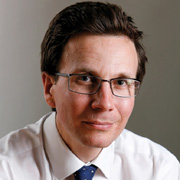Stephane Janin, head of international affairs at the AFG, L’Association Française de la Gestion Financière talks about the strenght ot the Paris funds industry.
This year, the French legislator and regulator have transposed the Ucits IV directive. They are currently proactively anticipating the future implementation of the Alternative Investment Fund Managers (Aifm) directive, without waiting passively for the last details to be provided at Level 2 by the European Securities and Markets Association and the European Commission.
Why do French authorities care so much about directives related to asset management? Because the Paris fund industry is already highly cross-border and is preparing for boosting even further its exports of services and funds towards the rest of Europe and beyond.
To illustrate this growing international demand for Paris-based asset managers and service providers, let us mention that: five French asset managers belong to the European distributors’ top 20 preferred brands; 71% of Paris-based asset managers already have foreign clients, and one-third of the remaining 29% intend to take benefit of the Ucits IV and Aifm passports to get some; Paris-domiciled funds are exported throughout Europe and on other continents, such as Asia and Latin America.
In China, several Paris-based managers hold the very selective Qualified Foreign Institutional Investor licence. And conversely, more and more international professional talents are coming to France.
There are four reasons for this success.
First, Paris is a highly competitive fund management centre with more than 600 asset managers: among them, boutiques are a permanent stimulus for challenging the four France-based global asset managers which rank in the top 20 worldwide. This state of competition, to the ultimate benefit of investors in terms of innovation, performance and costs, has been kept alive by the permanent growing number of asset managers in France for more than ten years.
And contrary to some other European Union members, the anticipation of Ucits IV has not generated a reverse trend: in 2010, the number of management companies increased by 25. This dynamism is reinforced by the unique mechanisms of fund seeding and development of emerging managers set up in Paris.
Professionalism
Second, 67% of assets managed by French managers are invested by institutional investors, both domestic and international. Having so many professional and, therefore, demanding clients creates a permanent need for managers to be ahead of the curve, in always finding the best balance between performance, innovation and safety. That is, in particular, why regarding innovation, France has always been a leader in Europe: the model of Ucits appeared in France in the 1960s, and the first onshore alternative investment funds, such as funds of hedge funds, were created in Paris in the 1980s. Structured funds, private equity funds, real estate funds or tailored investor funds were further steps for competitive designs. It explains why today the Ucits and Aifm directives have been largely inspired by the positive experience of French funds. For instance, the use of master-feeders was already commonly used in France at domestic level for nationally regulated funds well before Ucits IV and can now be replicated on a cross-border basis, by using a French master fund with local feeder funds. Regarding Aifm, the use of a depository or programmes of operations for managers required by the directive have been already perfectly known by French managers for a long time. Today, Paris is the first fund financial management centre in Europe: Ucits IV and Aifm will reinforce this position.
Third, the Paris fund industry is unique because of the comprehensive range of skilled players it offers. Three France-based custodians are in the global top ten. France-based auditors and lawyers are internationally recognised and provide on a daily basis for services covering the whole range of funds, including the most sophisticated, in a very competitive environment. It is not without reason that Paris-domiciled funds are far cheaper than the other main domiciliation centres in Europe.
Finally, such an early and permanent success is explained by the ability of the regulator (Commission des Operations de Bourse and then Autorité des marchés financiers) not only to understand sophisticated management techniques but also to provide for outstanding efficiency. Both Ucits and alternatives funds have to be agreed within eight days by the Autorité des marchés financiers (AMF) when analogous funds were agreed before. This maximum period of eight days is applicable in any case for any French fund targeted to professional investors. In addition, the AMF provides for electronic filing. And importantly, French funds suffer no registration tax or stamp duty.
To sum up, all these elements enforce why Paris is the first fund financial management centre and the second domiciliation centre in Europe.
Stéphane Janin, head of international affairs at the AFG, L’Association Française de la Gestion Financière talks about the strenght ot the Paris funds industry.
©2011 funds europe





